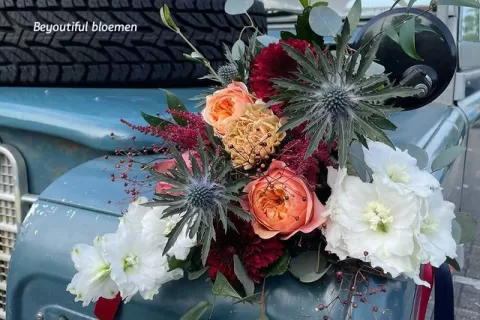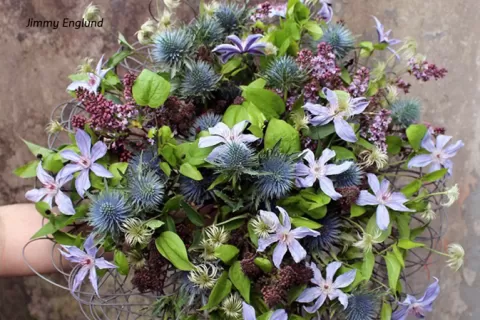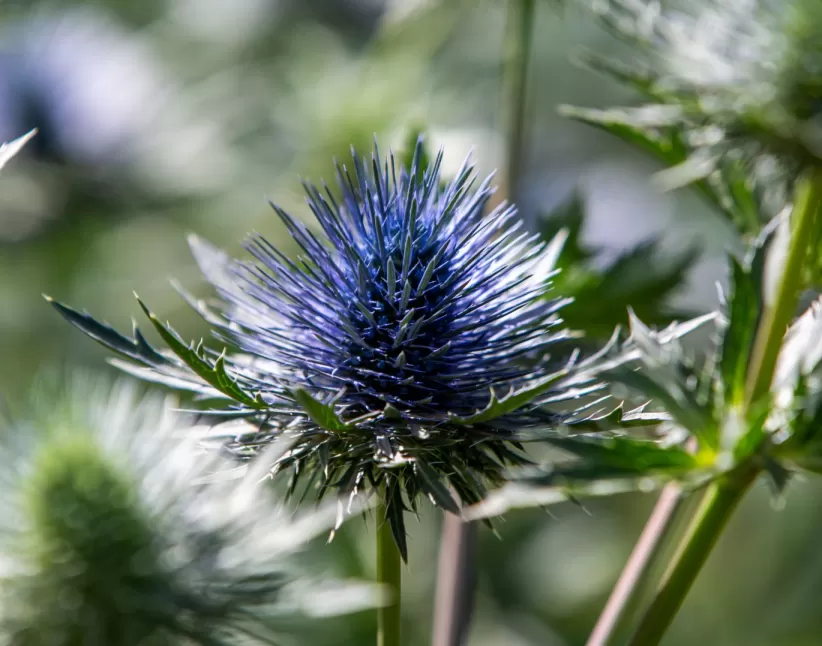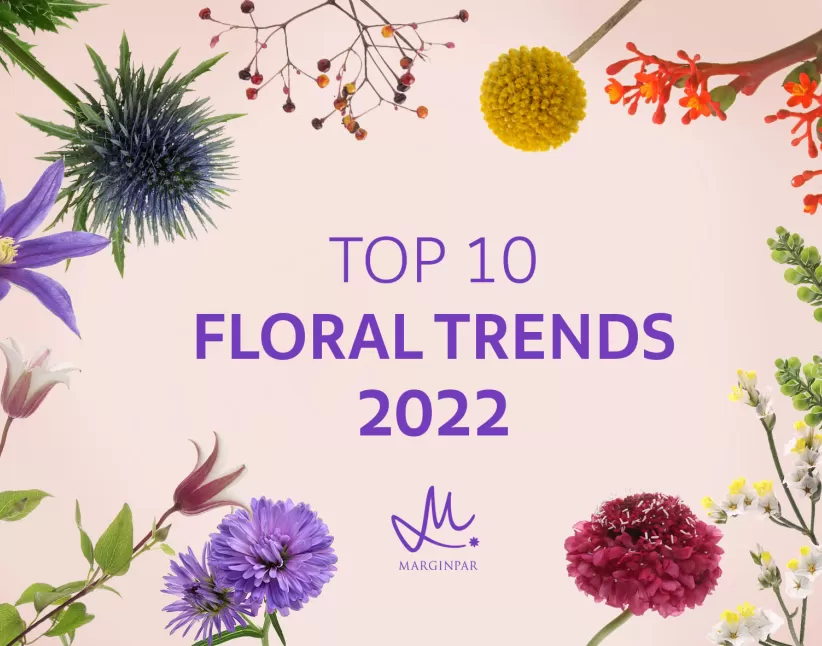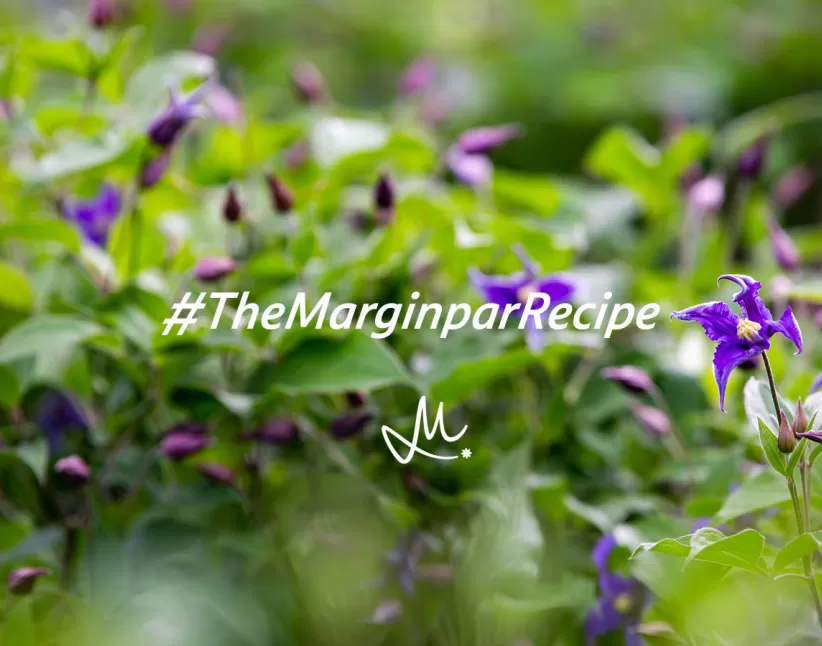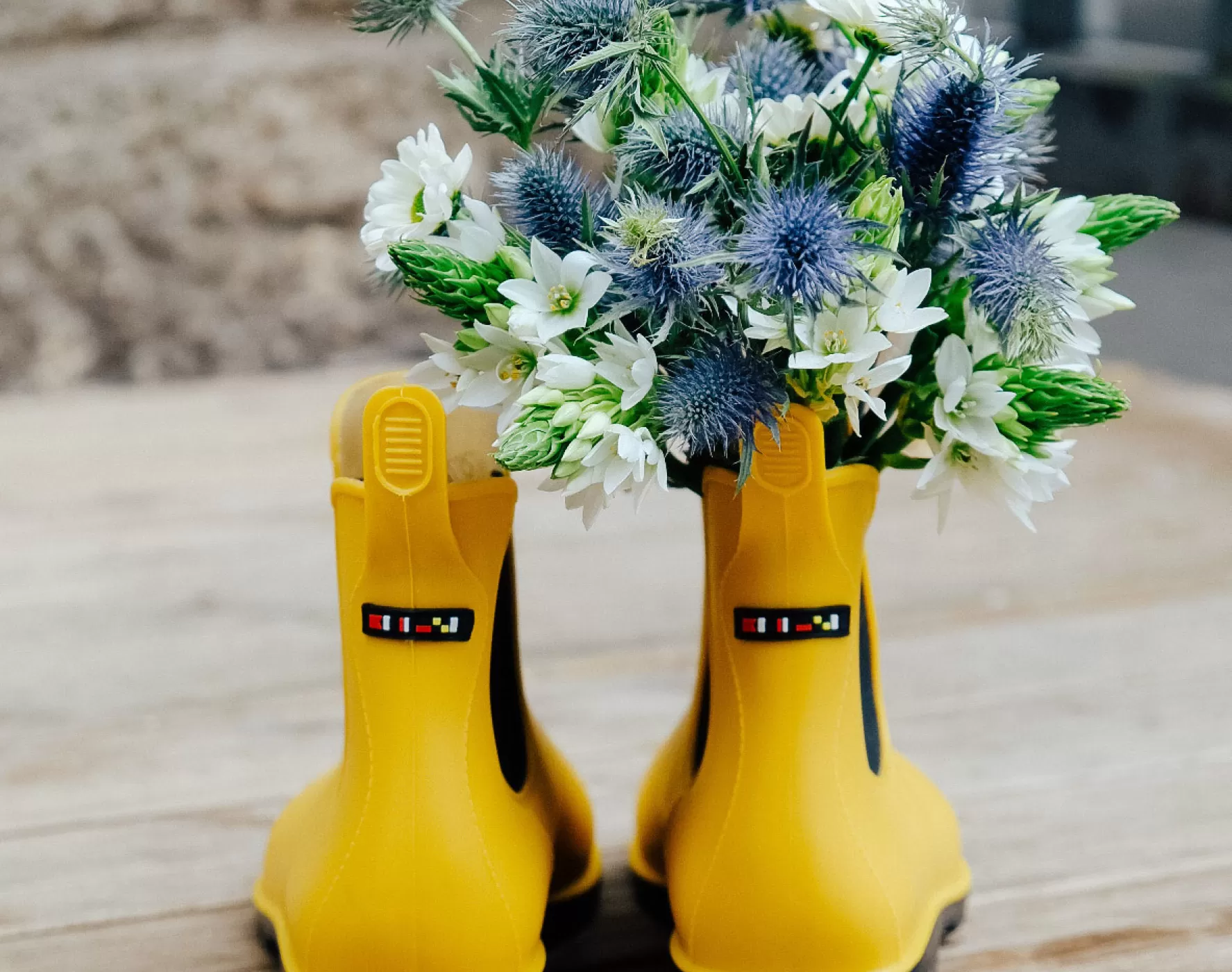
The Quest for Eryngium Questar®
A long time ago, in a galaxy far, far away..,
an Eryngium breeder and a flower grower embarked on an extraordinary quest.
lying 10,000 km from The Netherlands to Zimbabwe to put a variety into the ground that had never touched African soil, they patiently tested the perfect recipe for the Eryngium Questar® series. What happened next exceeded their wildest expectations. Today, Marginpar is responsible for about 85% of all Eryngium production sold through the Dutch flower auctions. From there they are exported to florists around the world.
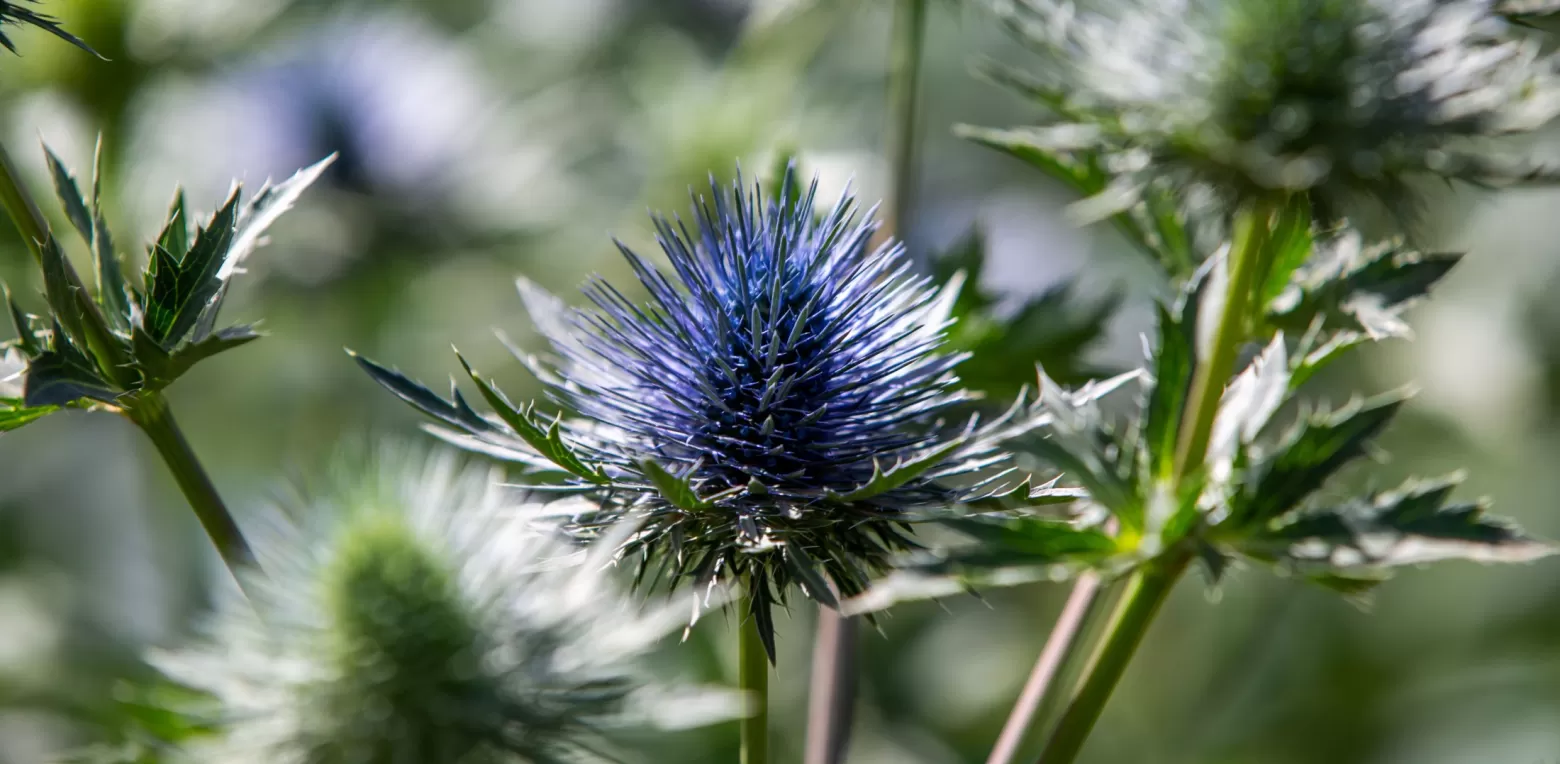
It’s all about innovation
Marginpar maintains strong partnerships with both large and small, international and Dutch breeders. These breeders cross plants until a flower emerges with all the unique characteristics that they, and we, are looking for. Then, when we believe it fits in the Marginpar range, this crop needs to be tested in Africa to find the right cultivation recipe. It can be a process of many years until it meets our standards and a product can be offered to the market. We work with the Marginpar model: an exclusivity agreement where the breeders and Marginpar jointly develop a variety and share in the success. One of the first partnerships started with Maruwa B.V. and Kwekerij Sinnich; joint breeders of our Eryngium Questar® varieties.
Risks and challenges
The collaboration with Marginpar started back in the early ’90s, when Bart van Rixel (Maruwa B.V.) and Peter and Diana Sinneger (Kwekerij Sinnich), came into contact with Marginpar owner Bate Koning. Peter Sinneger: ‘Marginpar was immediately wild about the Eryngium Questar® line. We took a big risk in the beginning when we sent about 90% of our plants to Zimbabwe because Bate needed more plants. That could have just as easily gone wrong. The first Eryngium Questar® stem I auctioned sold for 3 Dutch guilders, we had just 1 variety at the time.’ Now, years later, a whole line of thistles has been created: the Questar® series.
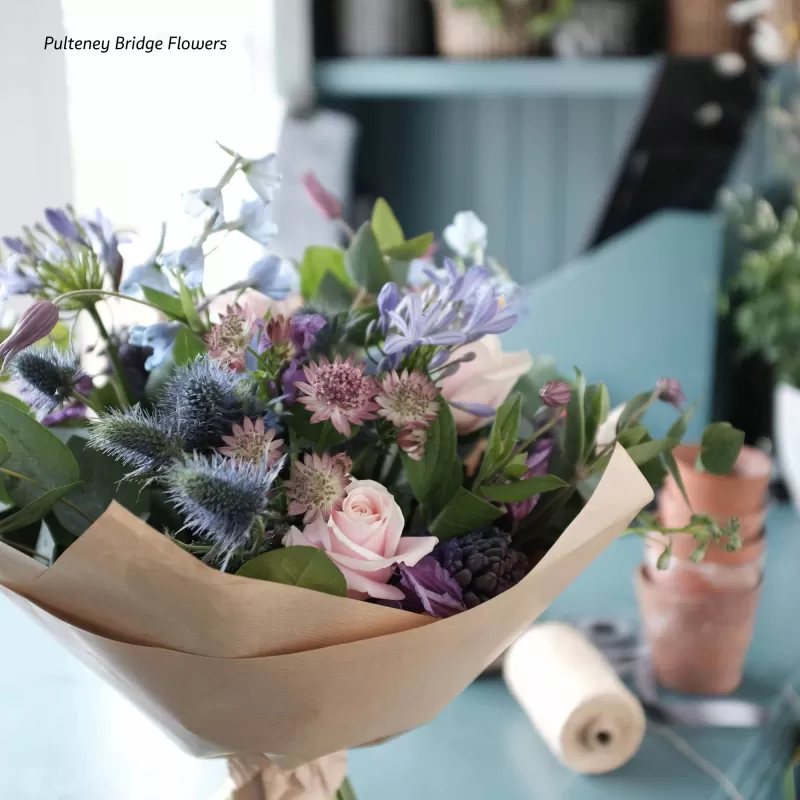
It has not been easy, Bart van Rixel en Peter Sinneger had to overcome many challenges, and they knew that more would follow. Peter: ‘We have had ups and downs, but nothing that we and the Marginpar farms couldn’t handle. One example is the hailstorms that sometimes destroyed entire fields. This is a major risk of open field cultivation. In Ethiopia, where large Eryngium fields are located, enormous hail nets of up to six metres in height are now being installed to prevent this from happening in the future. Another difficulty is crop rotation, to keep the soil, and plants, disease-free. Eryngium has few pest problems but is quite sensitive to disease. We are now using biological soil treatments. Organic cultivation in the world of flowers is not easy, but luckily we all like a challenge.’
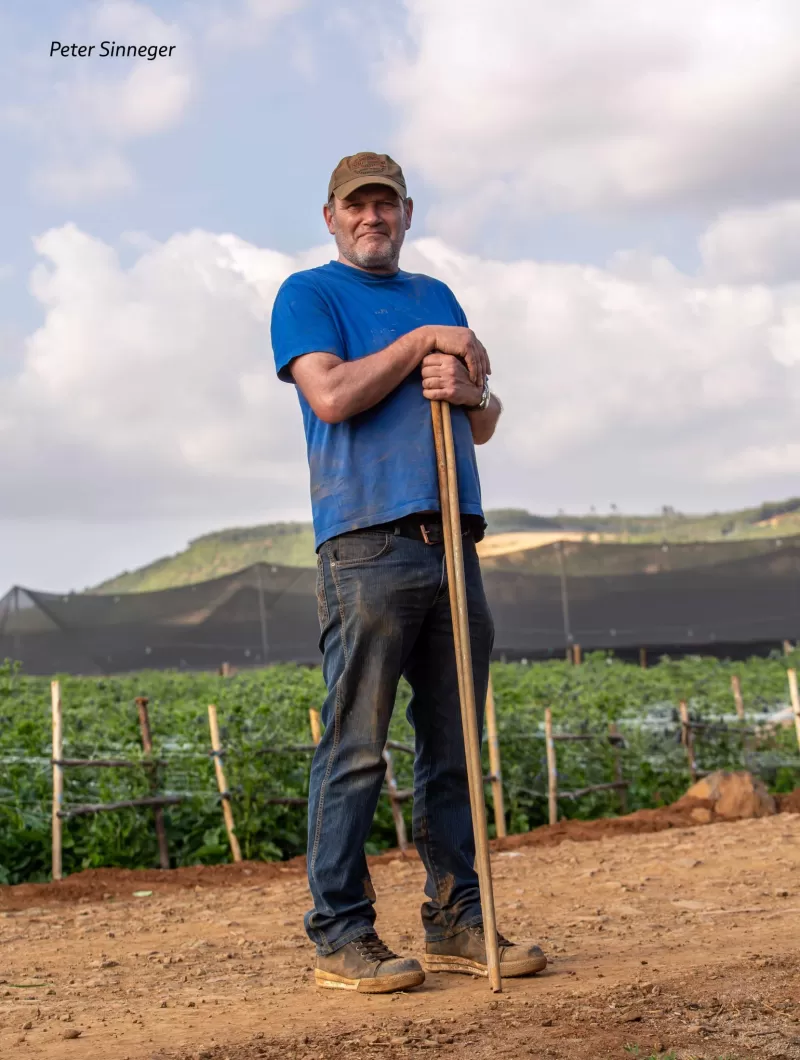
Creating a constant supply
From the beginning, Peter and Bart have often been to Africa to help out at the trial sites where the breeding recipes for new varieties are developed. Peter: ‘We now have a good breeding programme in test fields in Ethiopia, Kenya and on our home farm in the Netherlands to see the different performance in various climates. Tanzania is too hot for thistles, we tried that, but it didn’t quite work. Growing them in different countries, with seasons that are well-matched to each other, ensures a constant supply. Also, certain varieties grow better on one farm than another: the white Sirius, for example, does not do well in Ethiopia, but thrives in Zimbabwe; it prefers a slightly warmer climate. Another very important aspect of Eryngium is the timing of harvest. As soon as the flower starts to bloom, it draws nutrients from the leaf, which reduces the quality of the leaf. The flower must be picked from the field before that.’
New varieties
Marginpar and Kwekerij Sinnich have been working together for decades and we are all very proud of it. Diana: ‘We are proud that the flower itself has survived for so long and that there is still a demand for it. The fact that we, as a small breeder and grower, have been able to develop this and are still able to do so and that new varieties are constantly being introduced, is very special. We are also proud of the cooperation with Marginpar, longstanding as it is. The mutual trust is high, that is the basis.’ We feel the same way and are super excited about new Questar® varieties that are on their way. We can’t tell you just yet what exactly is coming, but we will be introducing new varieties really soon!

